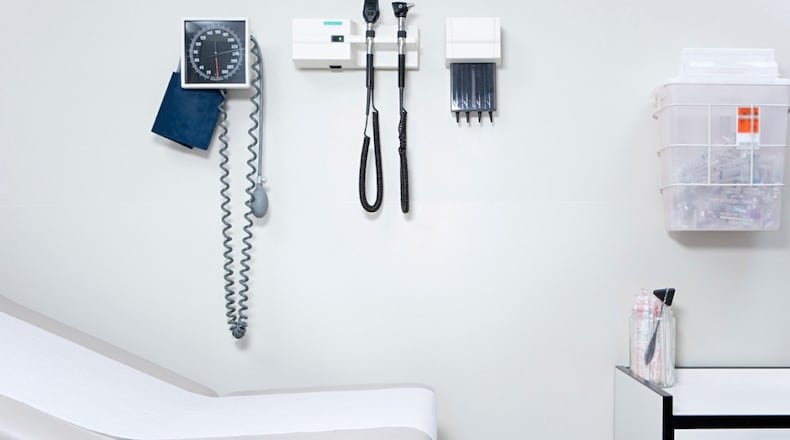MORE: How convenience is reshaping local health care
A Men’s Health Fair happening Saturday Nov. 23 at East End Community Services is aimed at fixing this trend. The fair by Community Health Centers of Greater Dayton and Molina Healthcare includes free screenings, an “Ask a Doc” panel and information for men looking for a provider. Attendees can also receive a gift card for a turkey or ham.
━━━━━━━━
Men’s Health Fair
When: 11 a.m. to 2 p.m., Nov. 23
Where: East End Community Services, 624 Xenia Ave., Dayton
What to expect: Health information and an “Ask a Doc” panel, blood pressure and glucose screenings, gift cards for a turkey or ham for men who participate in health education events, and booths by different community groups
━━━━━━━━
Gregory Hopkins, executive director for Community Health Centers of Greater Dayton, said it’s important that men have a regular provider that’s their medical home instead of just going to urgent care centers, because building up that relationship helps men feel comfortable sharing more information.
“With guys, we’re not really comfortable sharing our vulnerabilities and health issues so that sharing is not going to occur outside of a medical home,” he said.
According to a 2016 Cleveland Clinic survey of about 500 men ages 18 to 70 across the U.S, 61% said they go to their doctor when a symptom or problem becomes unbearable, while 42%t go to the doctor when they fear they have a serious medical condition. About 7 % said they never go to the doctor.
About 19% of men studied said they go to their doctor so their significant other or love one would stop asking them to do so. Most men studied said they are reluctant to discuss their health. The health topic men were most likely to be comfortable talking about were sports injuries or other injuries.
MORE: How a Dayton physician group improved diabetes care
Dr. Mumtaz Ibrahim, chief medical officer for Molina Healthcare of Ohio and New York, said conventional wisdom says that a visit to the doctor should be easy but a study by the Cleveland Clinic, 60% of men don’t visit a doctor regularly.
“If men kept up with their routine preventative visits there would be more early detection of diseases, benefiting not only them but also their families,” Ibrahim said. “So how do we convince men to get a check-up? Twenty percent say they visit a doctor because their significant others ‘push’ them to. Routine check-ups save lives and every man should get one because early detection is the key to longevity.”
Dr. Tiffany Inglis, medical director for Anthem Blue Cross and Blue Shield in Ohio, said their incentives and value payment models center around the primary care doctor, because if patients have a primary care doctor they are more likely to get the types of care that makes a difference in staying healthy, like colorectal cancer screenings and prostate cancer screenings. Their diabetes is more likely to be controlled and they have better cholesterol control.
Inglis said women have more of a pathway to establishing their primary care relationship early on through health care needs like family planning or pregnancy, which sets them up to have a regular provider that they are communicating with.
“But I don’t know if that happens so seamlessly for men. They tend to have a pediatrician and they tend to go off into young adulthood and there isn’t that set pathway and I think they get away from it,” she said.
About the Author
